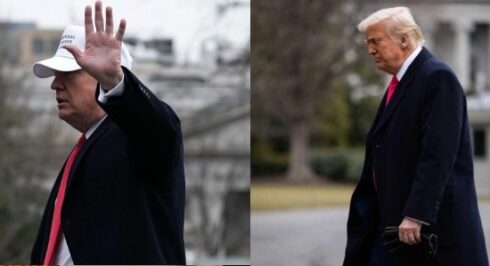A federal judge has temporarily blocked President Donald Trump from using the 1798 Alien Enemies Act to carry out mass deportations of Venezuelan immigrants, particularly those allegedly linked to the Tren de Aragua crime gang.
US District Judge James Boasberg issued an emergency order on Saturday evening, preventing deportations under Trump’s executive proclamation for 14 days, according to multiple media reports. The judge intervened after reports surfaced that planes carrying Venezuelan deportees were already airborne. He ordered authorities to turn them back, the Washington Post reported.
The Alien Enemies Act, originally designed to protect the United States during wartime, grants the president sweeping powers to detain and remove individuals deemed threats to national security. The law was controversially invoked during World War II to intern Japanese Americans. Judge Boasberg, however, questioned whether the law applied in this case, as no formal war had been declared by Congress.
Trump’s Justification and Executive Proclamation
President Trump justified his use of the Alien Enemies Act by declaring that the Tren de Aragua gang was “conducting irregular warfare” against the United States. He claimed the gang was “perpetrating, attempting, and threatening an invasion or predatory incursion against the territory of the United States.”
During his 2024 presidential campaign, Trump vowed to take aggressive action against illegal immigration, often citing crime concerns. Since his inauguration in January, he has worked swiftly to overhaul immigration policies, with this proclamation being one of his most controversial moves.
Under the executive order, Venezuelan immigrants in the U.S. who were at least 14 years old, linked to the Tren de Aragua gang, and not lawful permanent residents were to be “apprehended, restrained, secured, and removed as Alien Enemies.” However, critics pointed out that the proclamation did not specify how U.S. officials would determine an individual’s gang membership.
Legal and Civil Rights Challenges
The American Civil Liberties Union (ACLU) and other advocacy groups had already filed lawsuits against Trump’s proclamation even before it was issued. The ACLU argued that the administration was attempting to bypass immigration laws that already provide mechanisms for deporting individuals with criminal backgrounds.
During the court hearing, Judge Boasberg raised concerns about the language of Trump’s order, particularly his reference to an “invasion” or “predatory incursion.” Legal experts argued that such terms traditionally apply to hostile acts by enemy nations, rather than criminal gangs.
Katherine Yon Ebright, a counsel at the Brennan Center for Justice, criticized the order, stating that Trump’s invocation of the Alien Enemies Act allowed him to bypass due process. “He wants to bypass any need to provide evidence or convince a judge that someone is actually a gang member before deporting them,” she said. “This sets a dangerous precedent for broad and arbitrary detentions.”
Political Implications and Public Reaction
Trump’s move to invoke a rarely used wartime law for immigration enforcement has sparked intense political debate. His supporters view the action as a strong stance against illegal immigration, aligning with his campaign promises. Meanwhile, his critics see it as an unconstitutional overreach of executive power.
The case is expected to move through the legal system and could eventually reach the U.S. Supreme Court. If upheld, the ruling could set significant limits on Trump’s ability to use emergency powers for immigration enforcement.
Rights groups and legal analysts also warn that using the Alien Enemies Act in this manner could open the door for future presidents to implement mass deportations without due process. Some have drawn parallels to the law’s use in the past, particularly during wartime, when it was used to justify the internment of Japanese Americans.
What Comes Next?
For now, Judge Boasberg’s ruling prevents the Trump administration from carrying out mass deportations under the proclamation for two weeks. However, the legal battle is far from over. The Justice Department is expected to appeal the ruling, setting the stage for a prolonged court fight over presidential powers and immigration policy.
If the case reaches the Supreme Court, it could have lasting implications on the scope of executive authority in immigration matters. In the meantime, Venezuelan immigrants and advocacy groups remain on high alert as they prepare for the next phase of legal proceedings.
With immigration remaining a central issue in U.S. politics, the outcome of this case could have major consequences for Trump’s presidency and future immigration enforcement strategies.














